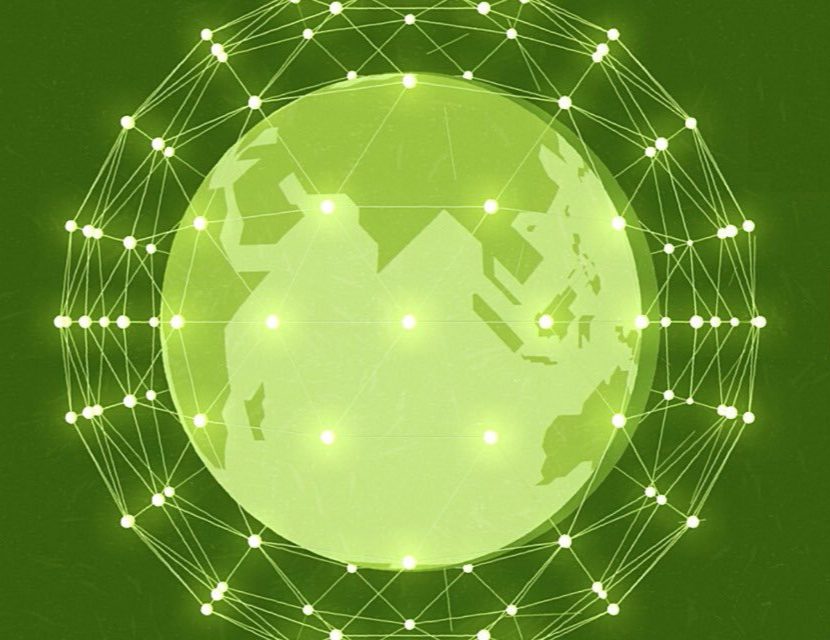Ali Hosseini – Founder & CEO of SenRa; a PAN India LoRaWAN network operator, and Co-Chair of the LoRa Alliance Marketing Committee, is renowned for his extensive experience across a plethora of areas.
Hosseini’s expertise is evident across many dimensions of information technology, wireless, mobile, and software development Industries; this comes from his prior experience operating with a multitude of Fortune 500 organizations, crossing a range of industries and working for firms such as Genilogix, an IT consulting firm, and Avnet Technology Solutions to name a few.
His proficiency is further demonstrated through his management of several successful businesses during his professional career. Notably, predating his career Hosseini has earned a Bachelor of Science, focused on Computer Science, attained from the University of North Carolina at Charlotte (2000-2005).
As a contributing member of the LoRa Alliance from August 2016, Hosseini is engaged in leveraging innovative wireless technologies and solutions to improve the quality of life and provide valuable insight in Low-Power Wide-Area Network (LoRaWAN) technologies for countries. Hosseini believes in the substantial transformative impact that this technology can have for vast and diverse countries such as India, coercing him to spearhead development of the ecosystem for deploying them.

Replacing departing Co-Chair MultiTech’s Sara Brown, Ali Hosseini was announced in Mid-December 2018 to be joining current Co-Chair Charles Paumelle of Microshare as Co-Chair of the Marketing Committee, currently headed by Marketing Director Emma Pearce. Together with the Committee, Hosseini has been helping to plan and execute the LoRa Alliance’s marketing strategy and run Committee meetings. Additionally, his expertise has been utilized as a LoRaWAN Ambassador speaking on behalf of the LoRa Alliance at events as well as to media and industry analysts.
He was quoted as saying, “I am extremely honored to have been nominated as the LoRa Alliance Marketing Committee Co-Chair.”
“Since 2016, I have had the opportunity to witness the LoRa Alliance to become one of the fastest-growing tech alliances in the world. I hope to contribute to the continued growth of the LoRa Alliance and the adoption of LoRaWAN.”
Ali Hosseini has since been awarded a Distinguished Service Award from the LoRa Alliance which was announced during the LoRa Alliance 11th All Members Meeting & LoRaWAN Live day in Berlin, Germany.
Ali Hosseini, LoRa Alliance Marketing Committee Co-Chair, LoRaWAN Ambassador, and SenRa CEO, said: “As a global organization we realize the potential of LoRaWAN to be the transformative technology to usher in the making of smart cities.”
Currently, SenRa has coverage in 50 cities across India to include the National Capital Region (NCR), Bengaluru, Ahmedabad, Mumbai, and Pune. SenRa is aiming to deploy network coverage PAN India in 100 cities selected as part of the Government of India’s Smart City Mission by 2020.

We caught up with Ali Hosseini recently to determine his views on the growth of IoT and opportunities that it brings to smart cities as part of our IoT Innovator Series.
What drew you to IoT?
In 2016, I had an opportunity to work with a company in the US, providing IoT connectivity as a consultant. Prior to that, I had heard of IoT at events I would attend and found it very interesting. Once I had an opportunity to work directly in the industry, I knew this was the industry for me. The power of connecting data wirelessly and the ability to process data in real-time providing valuable insights really amazed me. The applications are endless and up to one’s creativity on how to use and implement solutions.
When were you first introduced to IoT?
I first heard of IoT in 2015 at a conference in New York City called the 16th International CloudExpo. The funny thing is that the conference was more focused on cloud computing and cloud processing which was in line with my business at the time. During the conference I saw a few presentations on the “Internet of Things,” and it immediately grabbed my attention. One specific presentation called “Deep Field – Universes of Possibility from the Internet of Things” presented Ed Maguire a senior analyst at CLSA Americas did a fantastic job explaining the market opportunity and expected growth of IoT. Aside from the business opportunity side, I found the topic quite interesting overall, and the technology advancements struck a chord with my tech background.
What was your first IoT project?
Our first IoT project took place in the city of Wharda, Maharashtra, located in central India. The project was a proof of concept demonstrating how LoRaWAN can be used to transmit water meter data from residential homes to an analytics platform for the city to monitor the consumption of water and manage water distribution PAN city. We teamed up with local partners and global partners to make this project happen. The project consisted of 40 AMI LoRaWAN enabled Ultrasonic Water Meters, deployment of SenRa’s network, and integration with an analytics platform created by another Delhi start-up. The project lasted for about four months and proved to be successful. The data collected helped the city have insight they never had before on how the water was distributed, consumed, and even when the peak of use was.
What are you doing/working on today?
I run a business which provides LoRaWAN connectivity and services in India. Our business is horizontal and crosses all IoT segments and is ideal for customers who require the need for low-power, long-range, and low-cost solutions. Our focus is split between B2G and B2B currently, and most of our opportunities are in the Smart Cities and Industrial IoT space.
What are your predictions for IoT?
This is a loaded question, but based on the trends, I expect 2019 and 2020 be the years which connected devices will be deployed in real commercial projects at large scale. In the next five years, we will see 5G, NB-IoT, and LoRaWAN be the preferred technologies in Smart City projects, with 80% of the deployments being LPWAN. Predictive analytics, AI, and Big Data will create new insights and new ways of doing things which have never been seen or conceived and will continue to improve as more and more devices are deployed and connected.
Where do you see the most value created?
The way of the future is Data. Data creates so many new opportunities for business and cities to improve their operations, quality of life for citizens and employees, and even generate new revenue streams. There are some things to be considered, such as data privacy, data theft, and data manipulation. It is the responsibility of those developing managing and processing the data to abide by ethical and moral means. If that happens, the value of data can be endless.
What are the most inspiring/meaningful IoT initiatives you’ve seen?
I recently talked to the CEO, Adam Sobol, of a Chicago based start-up called CareBand working on LoRaWAN solutions in the Health and Life Sciences sector. Having spent 7+ years in the industry, I was very intrigued by what they were doing. Their primary mission is to reduce death and injuries due to dementia-related wandering while enhancing the quality of life for those living with dementia. Their wearable technology uses LoRaWAN for communication and has many patented features which allow the patient’s vital signs, location, and even notify on elevated levels such as high pulse rates. What they are doing, in my opinion, is what IoT is all about. It makes me very happy when I see IoT being used to save lives and used in a humanitarian approach.
Is there anything that you would like to see change, i.e., regulations, policies, etc. in the current way the development of IoT initiatives/solutions are undertaken?
Regulatory bodies should work more closely with the private sector to streamline IoT efforts and to enforce quality control, and compliance with regulatory requirements. Creating a framework where all technologies in the IoT can follow and abide. Certifications, standard application layers, and proper regulatory enforcement can streamline the roll-out of mass device connections and reduce security risks.
In your opinion, what is the biggest risk associated with IoT?
The lack of oversight and quality control, which can lead to security risks to critical systems and impact to personal privacy or health.
What is one piece of advice that you would offer a business leader that is interested in IoT?
Do your market research on the region in which you are focused on. Leverage a business plan to guide you through your initial setup days and continue to enhance and cross-check if your plan is on track or evolving. Make sure you have the necessary funding you need to stay in business for at least three years. If you are unable to see revenue by the end of the third year, you might want to strongly consider a change of business or focusing on a new path. Make sure you are compliant with the laws, standards, and specifications of the technology in which you are investing. Providing quality products and services that work is critical to a successful business. I always tell people you need to walk before you run. Your brand is important and going too fast can diminish that as well as have negative impacts on your business.
Originally published in The Smart City by Arti Loftus on September 19, 2019 and can be seen at https://www.smartcitysentinel.com/news/articles/443297-connecting-dots-between-iot-smart-cities-improve-quality.htm


